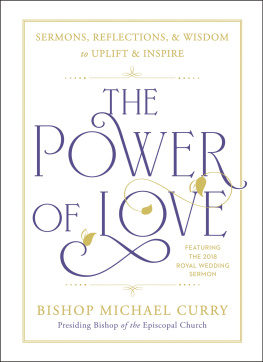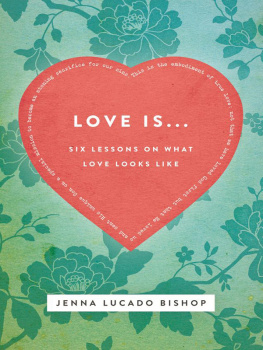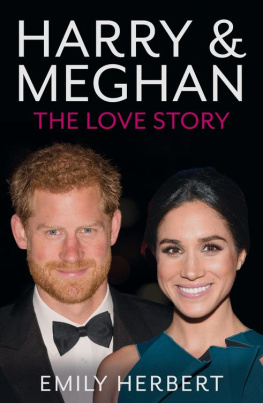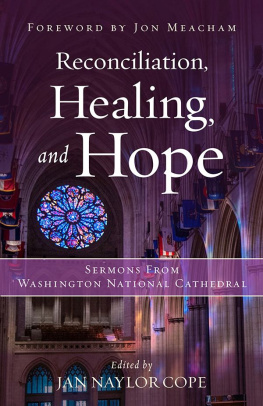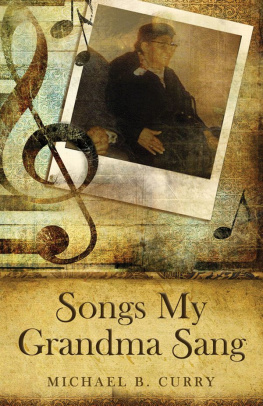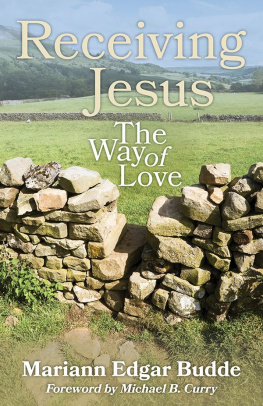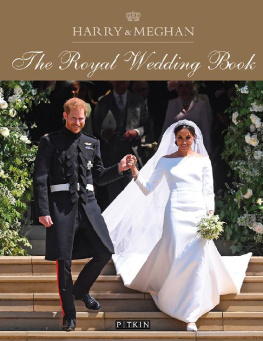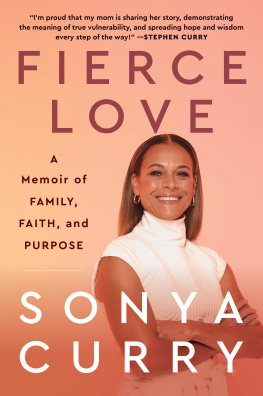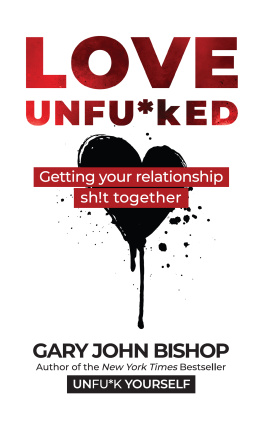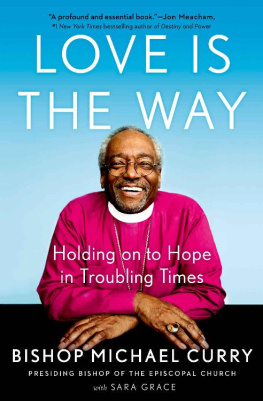Penguin supports copyright. Copyright fuels creativity, encourages diverse voices, promotes free speech, and creates a vibrant culture. Thank you for buying an authorized edition of this book and for complying with copyright laws by not reproducing, scanning, or distributing any part of it in any form without permission. You are supporting writers and allowing Penguin to continue to publish books for every reader.
INTRODUCTION

I do not actually know how Prince Harry and Meghan Markle came to the decision to ask me to offer the address at their wedding. Maybe I dont need to know.
I could well imagine the logic of it: a British prince and an American bride desire a message from some figure who represents both their worlds. They agree on the Presiding Bishop of the Episcopal Churchthe United Statesbased church that descends from the Church of England and remains in close communion with it. There is something poetic about it: her heritage is African-American, and so is the bishops. Here was a marriage that brought cultures together, brought countries together, brought the world together. Maybe they wanted a word from someone who understood and even represented our shared longing for reconciliation.
But I wasnt privy to their decision-making process. What I can tell you is when the Reverend Canon C. K. Robertson, my canon for ministry beyond the Episcopal Church, called to say the Royal Family would like to know if I would be available to preach a wedding on May 19, I thought he was pulling my leg. This couldnt be serious.
They were serious. This was real. Once that sunk in, I remember saying to myself, Okay, breathe. You preach all the time. This is what you do. The gospel hasnt changed. Let it be.
So I asked the questions you ask anytime youre preparing a sermon.
First: Who is the congregation? Who are you talking to? Especially for weddingsand I remember this from my days as a parish priestyou always address the couple. They are the congregation youre speaking to. By speaking to them authentically, you end up talking to their family and friends and whoever is assembled. In this case, the assembled group was the world, but the principle still applies.
Next: What is the gospel? What is the good news that you think Jesus is trying to say to them? That part was surprisingly easy. They chose the biblical text from the Song of Solomon, chapter eight. Up to that point in Song of Solomon, youre reading mostly love poetry between these two people, a very real, very human love. Then, in the eighth chapter, the woman stops. She shifts and begins to realize that the love theyre experiencing for each other, that love has its source in something thats bigger than the two of them. Thats why the rabbis included this text in the Hebrew Scriptures. They saw the connection between the love of the two in the poem and the God who is love and is the source of all genuine love.
The miracle is that we all got to experience that love, what the text was describing. We witnessed the love of these two people. We witnessed something bigger, the sourceGodwhile we were watching. For a while, this powerful love brought us all together: people of different political persuasions, different racial and ethnic groups, different socioeconomic groups. God used a very human love to show us a glimpse of what Gods dreamGods shalom or peaceis for the whole world.
Whatever sermon I actually preached was only an attempt to find words for that. I might have been preaching about the power of love, but God was giving people an experience of that power. God preached the sermon that really mattered. Our words can only point to it. You know it when you see it... when youre part of it.
Part of me wishes I could take the credit, but I cannot. I am glad I was sixty-five years old when this occurred. At age sixty-five, I know none of this is about me. I know the gifts I bring to the table. I also know my limits. Since the wedding, I have had surgery for prostate cancer, and felt utterly vulnerable and small in this world. Thats why I can say this: everything people have said about the magic of that sermon, that wasnt me. I couldnt manufacture that. Im not that good. I dont think anybody is. My grandmama would say, That aint nothing but the Lord.
All of which brings me to this moment and to this small collection of sermons and reflections. Here you will find my preferred version of the Royal Wedding address, edited lightly so that it is more suitable for reading. You will also find the first major sermon I preached after the wedding, my attempt to address the question so many people have asked: How does anybody actually live this way of love, the way Jesus lived and taught?
I have included the sermon from our Episcopal Revival in Austin, Texas, where thousands of Episcopalians and our friends got fueled up to embrace abundant life and share more love with the world. During a public prayer and witness outside the T. Don Hutto Detention Center, I joined with hundreds of others who dared to advocate for the immigrant women held inside. Together, we applied what it means to love your neighbor as yourself, this time in a social and political context.
Finally, I have turned back the pages, to share with you the sermon that launched my ministry as Presiding Bishop, where the themes of movement, love, and transformation were already front and center.
Some experiences are such powerful messages of Gods love that they become important to tell and retell, in different sermons over the years. Followers of my work may find those echoes in this collection as well. If you read this collection, maybe even pray with it, I can only hope you will come away with a renewed commitment to be people of love. Maybe you will have a stronger, clearer grasp on what the power of love means. Maybe you will discover new ways to cultivate that way of love in your own life, so it becomes the way you live and not just a thing you do.
I hope you recognize love as the most powerful force for personal change and for changing the world around us. Yes, we live in scary times. Yes, people are hurting. Yes, people are hurting one another. But anger is not the key; revenge is not the answer. The way of lovethe love and power of Godis the key to our hope and to our future.
The message of God is very simple. Love one another. Take care of one another. Take care of creation. And while youre at it, love melove God. Do that and you will find your way. That is the core of the gospel. That is the only sermon that matters.

